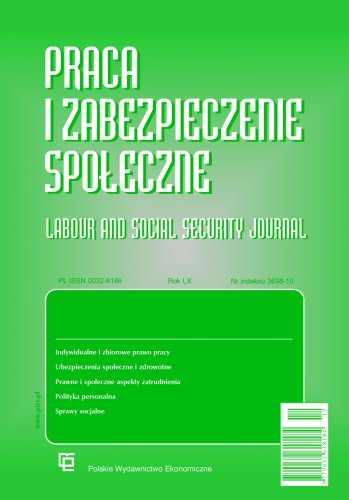When regulating remote work, the legislator assumed that the system of sanctions previously established in the labour law, and in particular in the Labour Code, is sufficient to ensure compliance with the provisions concerning this work. These are sanctions of invalidity, fines applied to the employee, property sanctions (private law) and penalties for misdemeanours and crimes against the employee`s rights (public law). A separate sanction is sanction of the lack of binding force of normative acts of autonomous labour law (collective agreements, company regulations). Such sanction may be imposed on collective agreements and company remote work regulation. On the other hand, the sanction of invalidity applies to individual employment contracts and individual agreements amending the previsions of previously concluded employment contracts. The consequence of violation of the provisions on remote work may therefore be the lack of binding force of collective agreements and regulations for remote work and the invalidity of contractual provisions regarding this work. In certain cases, the employer is obliged to accept the employee`s request to work remotely. Failure to comply with this obligation may be classified as a serious breach of basic obligations towards the employee and become basic for termination of the employment contract without notice due to the fault of employer. The Labour Code also provides that under certain circumstances an employee may be ordered to work remotely. This instruction has a special legal character and therefore, in the event on its non-compliance, the employer may not impose a penalty (admonition or reprimand) against the employee.
Keywords: work; sanctions of labour law; sanction of invalidity; sanction of lack of binding; request for remote work; command to perform remote work

